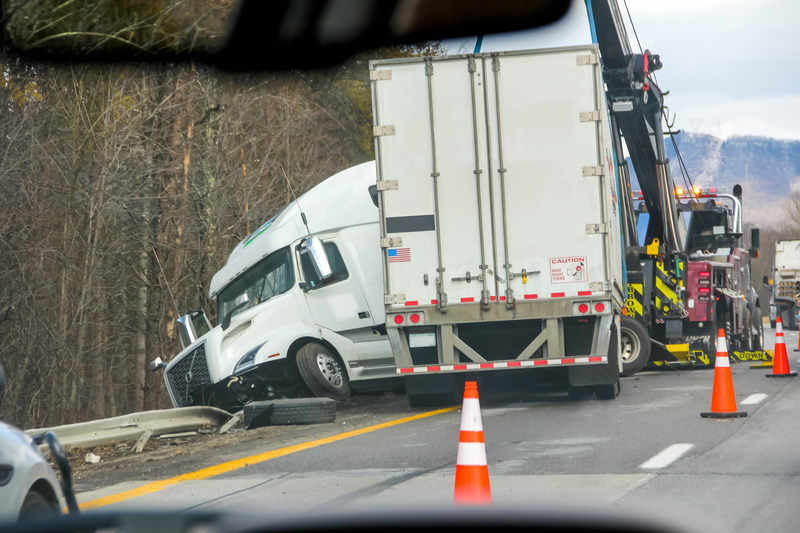Big truck accidents are some of the most catastrophic incidents on the road due to the sheer size and weight of these vehicles. Understanding the common causes of big truck accidents can not only help in reducing their occurrence but also in improving overall road safety. Whether you’re a truck driver, a passenger vehicle driver, or a trucking company owner, recognizing these causes and implementing preventive measures is essential.
Common Causes of Big Rig 18-Wheeler Truck Accidents
- Driver Fatigue: Truck drivers often work long hours, and despite regulations, fatigue is a leading cause of accidents. Fatigue can impair a driver’s reaction time and judgment, leading to potentially deadly mistakes.
- Distracted Driving: With the advent of mobile devices, distracted driving has become a major issue. Truck drivers may be tempted to check messages, use GPS, or even eat while driving, taking their focus off the road.
- Speeding: Trucks require a longer distance to stop due to their mass. Speeding reduces the time a driver has to react to sudden changes in traffic conditions, increasing the likelihood of an accident.
- Improper Maintenance: Regular maintenance is crucial for big trucks. Brake failures, tire blowouts, and other mechanical issues are common causes of accidents when trucks are not properly maintained.
- Overloaded Trucks: Overloading a truck can lead to brake failure, tire blowouts, and difficulties in controlling the vehicle, especially when turning or braking suddenly.
- Poor Weather Conditions: Rain, fog, snow, and ice can make roads dangerous, particularly for large trucks that are more difficult to maneuver and stop.
How to Avoid Big Rig 18-Wheeler Truck Accidents
- Adhere to Rest Schedules: For truck drivers, it’s crucial to follow regulations regarding rest periods. The Federal Motor Carrier Safety Administration (FMCSA) mandates specific rest periods to ensure that drivers are well-rested.
- Minimize Distractions: Stay focused on the road. Avoid using mobile devices, eating, or engaging in activities that take your attention away from driving. Use hands-free devices if communication is necessary.
- Obey Speed Limits: Always adhere to posted speed limits, especially in construction zones and on rural roads where stopping distances can be longer due to the condition of the road surface.
- Regular Vehicle Maintenance: Trucking companies should ensure that their fleets are regularly inspected and maintained. Drivers should conduct pre-trip inspections to identify and report any issues.
- Proper Load Management: Ensure that trucks are not overloaded. Properly secure all cargo to prevent shifting during transit, which can destabilize the vehicle.
- Drive According to Conditions: In adverse weather conditions, reduce speed and increase following distance. Truck drivers should be particularly cautious on wet or icy roads and consider delaying travel if conditions are too dangerous.
Big truck accidents can have devastating consequences, but many of these accidents are preventable. By understanding the common causes and taking proactive steps to mitigate these risks, drivers and trucking companies can play a significant role in making the roads safer for everyone.
Schedule a Consultation
If you’ve been involved in a big truck accident, it’s crucial to seek legal advice from a qualified attorney. Contact our office today to schedule a consultation and learn how we can help you pursue the compensation you deserve.








